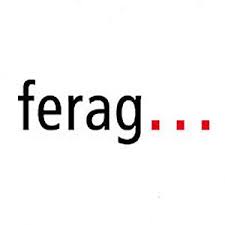Anhydrous Green Ammonia – NH3
Anhydrous ammonia is used in the chemical industry as an intermediate for the production of other substances, for the production of fertilizers, ammonia solutions, explosives, for saponification of fats and oils, it is a cooling medium in the refrigerating systems, it is used in the pharmaceutical industry, in electronic engineering for printed circuit board etching, in metallurgy, etc. Industrial uses of anhydrous ammonia as an intermediate, use of ammonia as a processing aid, non-processing aid and auxiliary agent, wide dispersive end-use: professional uses.
EC Number
231-635-3
CAS number
7664-41-7
Name of Substance – Chemical formula
Anhydrous ammonia – NH3
Physical state
in 20 degree Celsius, 1014 hPa, gas
Content
>99.85 %
Colour
Colourless
Oddour
Distinctive, sharp
DENSITY
6.96 g/L
Melting / freezing point
-77.7 Degree Celsius (1013 hPa)
toxicity
Toxic if inhaled
Boiling point
-33C (1013hPa)
Auto – Ignition Temperature
651 Degree Celsius
Flammability
Flammable
Vapour pressure in 20 Degree Celsius
8611 hPa
Ammonia solution 0.91 (25,0%) – NH4OH
Ammonia solution, also known as ammonia water, ammonium hydroxide, Aqueous ammonia is used in traditional qualitative inorganic analysis as a complexant and base. Like many amines, it gives a deep blue coloration with copper(II) solutions. Ammonia solution can dissolve silver oxide residues, such as that formed from Tollens’ reagent. It is found in solutions used to clean gold, silver, and platinum jewelry. Industrial Uses for laboratory chemicals , water treatment, food production, furniture darkening, household cleaner, absorption refrigeration.
EC Number
1272/2008
CAS number
1336-21-6
Name of Substance – Chemical formula
Ammonium hydroxide – NH4OH
Physical state
in 20 degree Celsius, 500 hPa
Content
25%
Colour
Colourless
Oddour
Distinctive, sharp
DENSITY
0.88-0.91 g/L
Melting / freezing point
-57 Degree Celsius (1013 hPa)
toxicity
Toxic if inhaled
Boiling point
38 Degree Celsius
Auto – Ignition Temperature
651 Degree Celsius
Flammability
Not applicable
Vapour pressure in 20 Degree Celsius
500 hPa – 20 Degree Celsius
Compressed Green Hydrogen – H2
Hydrogen is used for the synthesis of basic products in the chemical industry, such as: hydrogen chloride, methanol, synthetic petrol, ammonia, and for the organic syntheses of hydrogenation reactions. Hydrogen is also used in welding technology, glasswork, metallurgy, Fuel, feedstock for over 6000 products, industrial
use, generating of energy over a fuel cell.
EC Number
215-605-7
CAS number
1333-74-0
Name of Substance – Chemical formula
Hydrogen – H2
Physical state
<none>
Content
>99.9999 %
Colour
Colourless
Oddour
<none>
DENSITY
<none>
Melting / freezing point
-259,2 °C
toxicity
<none>
Boiling point
-253 °C
Auto – Ignition Temperature
<none>
Flammability
Flammable
Vapour pressure in 20 Degree Celsius
<none>
Compressed Oxygen – O2
Industrial and professional use, calibration gas, test gas, carrier gas, food packaging gas, balance gas for mixtures, chemical synthesis, combustion, melting and cutting processes, laboratory use, laser gas, oxidising agent, process gas, shielding gas in gas welding, use of gas to manufacture pharmaceutical products, medical usage)
EC Number
231-956-9
CAS number
7782-44-7
Name of Substance – Chemical formula
Oxygen – O2
Physical state
<none>
Content
>99.5 % Medical Grade
Colour
Colourless
Oddour
Odorless
DENSITY
1,1
Melting / freezing point
-218,4 °C
toxicity
Not toxic
Boiling point
-183 °C
Auto – Ignition Temperature
Not Applicable
Flammability
Not Flammable
Vapour pressure in 20 Degree Celsius
<none>
Compressed Nitrogen – N2
EC Number
231-783-9
CAS number
7727-37-9
Name of Substance – Chemical formula
Nitrogen – N2
Physical state
<none>
Content
>100%
Colour
Colourless
Oddour
Odorless
DENSITY
1,1
Melting / freezing point
-210,01 °C
toxicity
Not toxic
Boiling point
-196 °C
Auto – Ignition Temperature
Not Applicable
Flammability
Not Flammable
Vapour pressure in 20 Degree Celsius
<none>
Argon – Ar
Argon is the ideal shielding gas for use in welding, even at very high plasma arc temperatures, which is often the case with special welding methods. Even at very high temperatures and unlike nitrogen, argon remains inert and does not form compounds with oxygen.
Argon is an excellent gas for both MIG and TIG welding for welding non-ferrous materials. When welding carbon and alloyed steels, using the MAG method, using the right gas mixture, by adding active (CO2, O2, H2) and inactive (He, N2) gas components to Argon, the best welding process conditions can be created for specific materials, joint types, positions and conditions.
EC Number
231-147-0
CAS number
7440-37-1
Name of Substance – Chemical formula
ARGON – AR
Physical state
<none>
Content
>99.9999
Colour
Colourless
Oddour
Odorless
DENSITY
1.38
Melting / freezing point
-189.4 Degree Celsius
toxicity
<none>
Boiling point
-185.8 Degree Celsius
Auto – Ignition Temperature
Not applicable
Flammability
Not Flammable
Vapour pressure in 20 Degree Celsius
<none>











